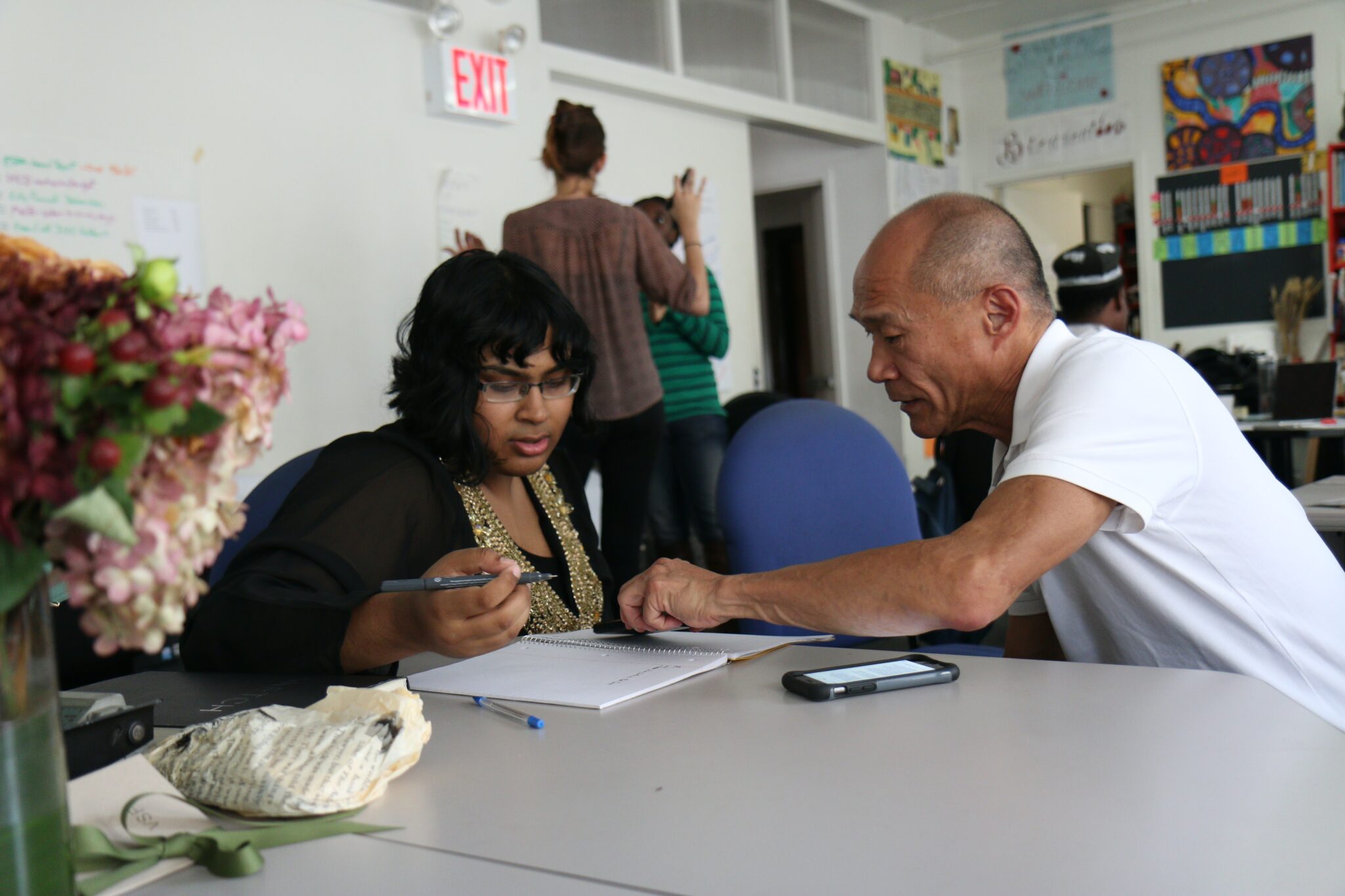Here are practical steps, distilled from the experiences of language learners, to guide you through this journey.
Embarking on the journey from novice to fluent in a new language is a path filled with challenges, discoveries, and profound personal growth. The road to language mastery is not only about acquiring new words and grammar; it’s a transformative experience that reshapes how we communicate, think, and understand different cultures.
- Identify your motivation: Before diving into language learning, pinpoint why you want to learn a new language. Is it for travel, career advancement, heritage, or personal enrichment? Your motivation will be your anchor throughout this journey, especially during challenging times.
- Choose the right language learning tool: Picking an appropriate tool or program is crucial. There are many options available, from apps like Duolingo to comprehensive platforms like MakesYouFluent. Look for a tool that matches your learning style, whether it’s visual, auditory, or kinesthetic. MakesYouFluent, for example, receives praise for its engaging, interactive approach, making it a popular choice among learners who prefer a more immersive experience. That’s why this latter tool with a 4-star rating is our top pick for mastering any language of these: Italian, Spanish, German, French, British, Dutch, Norwegian, Swedish, Portuguese, and English.
- Set realistic goals: Break down your learning into achievable milestones. Whether it’s mastering basic conversational phrases or understanding a newspaper article without assistance, setting clear, attainable goals will help keep you motivated and focused.
- Create a consistent routine: Dedicate specific times of your day to language learning. Consistency is key. Even 15 to 30 minutes daily can lead to significant progress over time. The regular exposure to the new language will enhance retention and understanding.
- Immerse yourself in the language: Beyond structured lessons, immerse yourself in the language as much as possible. Watch movies, listen to music, read books, or follow social media accounts in the language you’re learning. This exposure to real-life contexts enriches your learning experience.
- Practice speaking from day one: Don’t wait until you feel ‘ready’ to start speaking. Use language exchange meetups or online platforms to practice speaking with native speakers. Mistakes will happen, but they’re invaluable learning opportunities.
- Incorporate language learning into your hobbies: Combine your interests with language learning. If you enjoy cooking, try following recipes in the target language. If you’re a fan of video games, switch the game’s language setting. This makes learning more enjoyable and relevant to your life.
- Use flashcards for vocabulary: Flashcards remain one of the most effective tools for memorizing new vocabulary. Digital flashcard apps like Anki allow for spaced repetition, a technique that helps improve memory retention by reviewing flashcards at optimized intervals.
- Keep a language diary: Writing in a diary in the target language can significantly improve your writing skills and help you reflect on your daily learning experiences. It’s also a great way to track your progress and express yourself in the new language.
- Be patient and kind to yourself: Language learning is a marathon, not a sprint. There will be plateaus and moments of frustration. Remember, every language learner goes through these phases. Celebrate small victories and remain patient and persistent.
- Seek feedback regularly: Don’t be afraid to ask for feedback on your language skills from teachers, language partners, or online communities. Constructive criticism is essential for growth and improvement. Out top pick for a platform with language teachers: Preply
- Adjust your strategy as needed: Be flexible in your learning approach. If something isn’t working for you, don’t hesitate to try a new method or tool. The key is to find what works best for your unique learning style.
From selecting the right language learning tool to immersing yourself in the culture, each step on this journey contributes to a deeper understanding and fluency in the new language. Remember, the journey of language mastery is as much about the process as it is about the outcome. Embrace each phase of your learning, and you’ll find the path from novice to fluent filled with rewarding experiences and insights.
How can learning a new language help
Learning a new language opens up a myriad of benefits, particularly when traveling. It allows for a deeper connection with the culture and people of the places you visit. By speaking the local language, even at a basic level, travelers can navigate more efficiently, understand cultural nuances, and form meaningful relationships with locals. This linguistic ability enhances the travel experience, making it more enriching and immersive.
Beyond the travel perks, learning a new language has far-reaching benefits. It improves cognitive abilities, enhancing problem-solving skills, memory, and the capacity for multitasking. This cognitive flexibility also contributes to a better understanding and appreciation of the world’s diversity, promoting empathy and tolerance towards other cultures.
Furthermore, in the global job market, bilingualism or multilingualism can be a significant advantage, opening up opportunities in international business, diplomacy, and global NGOs. It enhances one’s resume, showcasing adaptability and a willingness to learn and engage with new challenges.
In summary, while the immediate joy of communicating in a new language might be felt most acutely while wandering through foreign markets, asking for directions, or sharing a meal with new friends abroad, the benefits of learning another language stretch far beyond the travel experience, enriching one’s personal and professional life in myriad ways.




























































































































































































